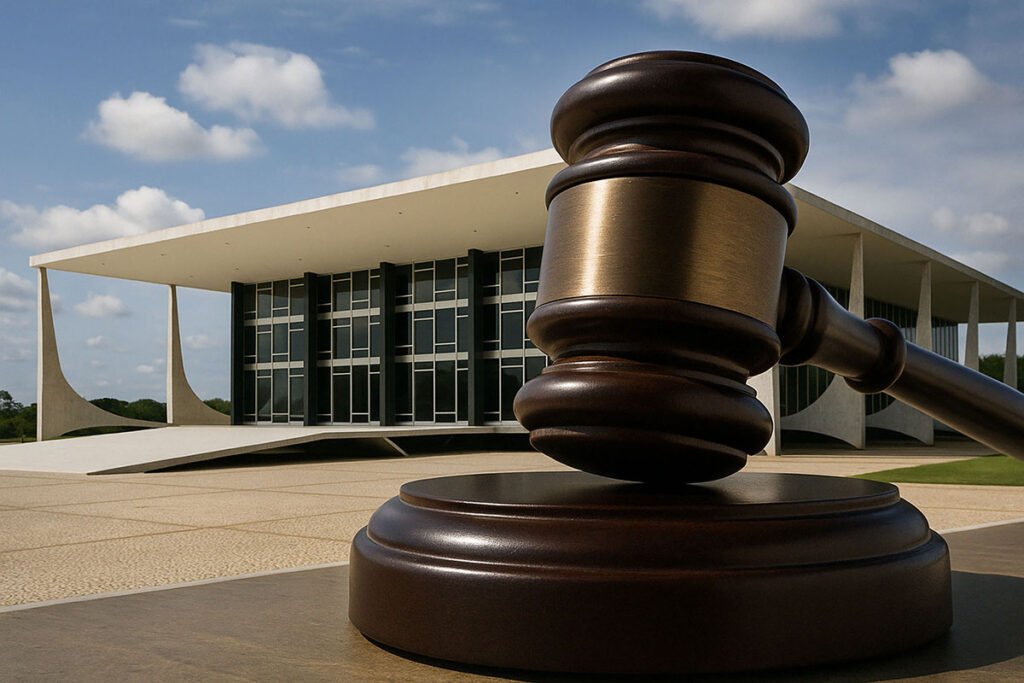Em recente julgamento (REsp 2.180.611-DF), a Terceira Turma do STJ estabeleceu um entendimento crucial que visa proteger o patrimônio do coproprietário ou cônjuge, em caso de penhora e arrematação de bens indivisíveis, que não tem responsabilidade pela dívida (o alheio à execução). O que mudou e o que você precisa saber? A lei (Código de Processo Civil - […]
CPDMA BLOG
STF suspends proceedings on the legality of service provision contracts across the country

The Supreme Federal Court (STF) has decided to suspend, nationwide, all legal proceedings that question the legality of service provision contracts, commonly known as “pejotização”. The decision, issued by Justice Gilmar Mendes, aims to standardize the interpretation on the matter and ensure legal certainty.
The STF recognized the general repercussion of the issue when analyzing the Extraordinary Appeal with Aggravation (ARE) 1532603, which addresses jurisdiction and the burden of proof in cases involving alleged fraud in civil/commercial service contracts and the legality of hiring a legal entity or self-employed worker for this purpose.
Although the appeal addresses “pejotização” in franchise agreements, the Reporting Justice clarified that the discussion is not limited to this type of contract, due to the increasing number of cases on the topic being brought before the STF.
Justice Gilmar Mendes emphasized that many Constitutional Complaints have been filed against decisions by the Labor Court that restricted the freedom of productive organization, despite the understanding established by the STF in the ruling of ADPF 324, which has generated significant legal uncertainty.
The nationwide suspension is not an automatic consequence of the recognition of general repercussion, but rather a decision made by the reporting Justice of the extraordinary appeal. Justice Gilmar Mendes, in making this decision, considered the jurisdiction of the Labor Court to rule on cases involving fraud in civil service contracts; the legality of hiring self-employed workers or legal entities to provide services; and the burden of proof concerning the allegation of fraud in civil contracting.
With the suspension, the STF aims to prevent the multiplication of conflicting decisions on the subject, prioritizing legal certainty and fulfilling its constitutional role in resolving social conflicts.
Recent posts
O Superior Tribunal de Justiça (STJ) firmou um importante entendimento no Tema Repetitivo 1368 sobre a taxa de juros de mora aplicável a dívidas de natureza civil no Brasil, antes da vigência da Lei n.º 14.905/2024. --- A tese firmada: o STJ estabeleceu que o artigo 406 do Código Civil de 2002 (em sua redação anterior à Lei […]
Rural sale-and-leaseback: liquidity for companies in crisis and protected returns for investors
No agronegócio brasileiro, a busca por capital rápido em meio à escalada dos juros fez crescer uma estrutura já conhecida no mercado imobiliário urbano: o sale-and-leaseback. A lógica é direta: o produtor vende a área rural a um investidor, recebe o dinheiro à vista e, no mesmo ato, assina um contrato de arrendamento a longo prazo […]
Em 3 de julho de 2025, a Comissão de Valores Mobiliários (CVM) publicou as Resoluções CVM 231 e 232, instituindo o regime FÁCIL (Facilitação do Acesso ao Capital e Incentivos às Listagens). A iniciativa visa simplificar o ingresso de Companhias de Menor Porte (CMP) no mercado de capitais brasileiro, promovendo transparência regulatória e estabilidade jurídica, […]
Thayse Bortolomiol takes over as head of the Business Restructuring Area at CPDMA.
Attorney Thayse Bortolomiol takes over the coordination of CPDMA's Business Restructuring area, maintaining the technical and strategic standard that has built the firm's reputation in this field and continuing one of its most prominent areas of practice. With eight years of experience at CPDMA, Thayse has been directly involved in key initiatives led by the firm, gaining […]
Nas sociedades anônimas, a figura do acionista controlador desempenha papel central na definição dos rumos estratégicos da companhia. Detentor do poder de eleger a maioria dos administradores e de influenciar as deliberações sociais, esse acionista possui uma posição de destaque que, embora legítima, deve ser exercida dentro dos limites legais e em consonância com os […]


